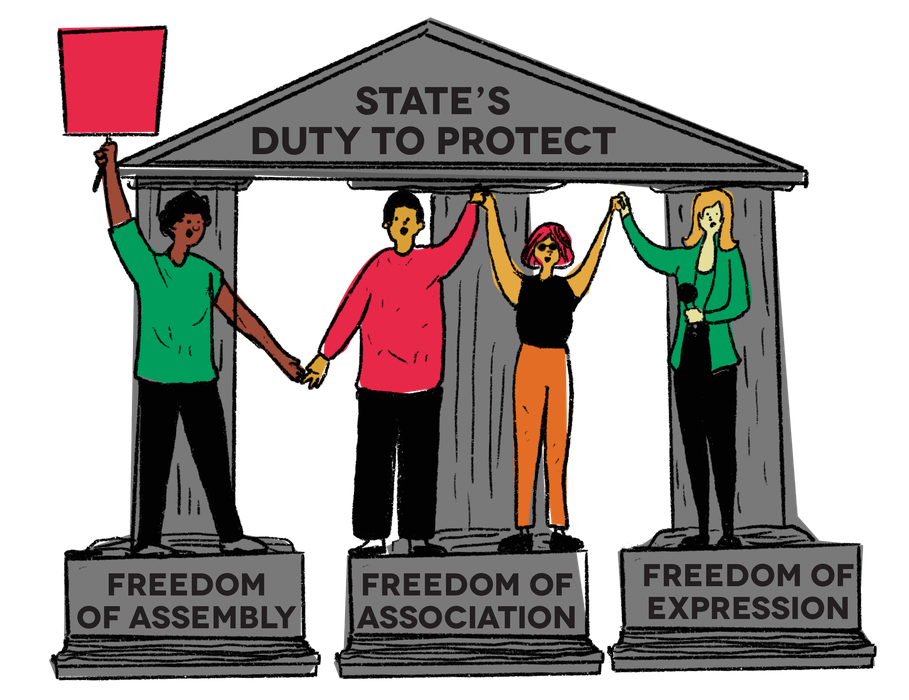What is civic space?
Civic Space
Civic space is the bedrock of any open and democratic society. When civic space is open, citizens and civil society organisations are able to organise, participate and communicate without hindrance. In doing so, they are able to claim their rights and influence the political and social structures around them. This can only happen when a state holds by its duty to protect its citizens and respects and facilitates their fundamental rights to associate, assemble peacefully and freely express views and opinions. These are the three key rights that civil society depends upon. The CIVICUS Monitor analyses the extent to which the three civil society rights are being respected and upheld, and the degree to which states are protecting civil society.
CIVICUS understands that many other factors influence civil society's success. These include civil society's levels of funding, the availability and quality of channels for dialogue with governments, and the strength of public trust in civil society organisations, factors that CIVICUS analyses in other aspects of our work. However, the CIVICUS Monitor’s working understanding of civic space is kept intentionally narrow, focusing on the basic elements that can form a basis for civil society advocacy.

Association
The right to the freedom of association is the right of any citizen to join a formal or informal group to take collective action. This right includes the right to form a new group and join an existing group. Associations can include civil society organisations, clubs, cooperatives, non-governmental organisations, religious associations, political parties, trade unions, foundations and online associations, as well as less defined and new forms of groups such as social movements. There is no requirement that the association be registered in order for the right of the freedom of association to apply. Under the right to the freedom of association, groups have the right to access funding and resources.
For more on the right to the freedom of association, see the website of the current UN Special Rapporteur on the rights to freedom of peaceful assembly and of association, and the website of the former Special Rapporteur.
Peaceful Assembly
The right to the freedom of peaceful assembly is the right of citizens to gather publicly or privately and collectively express, promote, pursue and defend common interests. This right includes the right to participate in peaceful assemblies, meetings, protests, strikes, sit-ins, demonstrations and other temporary gatherings for a specific purpose. States not only have an obligation to protect peaceful assemblies, but should also take measures to facilitate them.
For more on the right to the freedom of association, see the website of the current UN Special Rapporteur on the rights to freedom of peaceful assembly and of association, and the website of the former Special Rapporteur.
Expression
The right to the freedom of expression includes the right to access information, critically evaluate and speak out against the policies and actions of state and non-state actors, and publicly draw attention to and carry out advocacy actions to promote shared concerns, without fear of retribution from any quarter. Civil society organisations should be assured the freedom to carry out investigations and document their findings under this right.
For more on the right to the freedom of expression, see the website of the UN Special Rapporteur for freedom of expression and opinion.
The state's duty to protect civil society
Built into each of the three core freedoms is the understanding that a state must go beyond simply refraining from interfering in citizens' enjoyment of their rights. The state must actively take steps to protect people who choose to associate, peacefully assemble and express themselves. When the state actively protects rights, civil society organisations can pursue peaceful causes and express themselves without fear of retribution, while demonstrators are protected during public gatherings. The state's duty to protect also means that, when rights are violated, there should be thorough police investigations and legal proceedings. When such steps are not taken, impunity for those who attack civil society prevails.